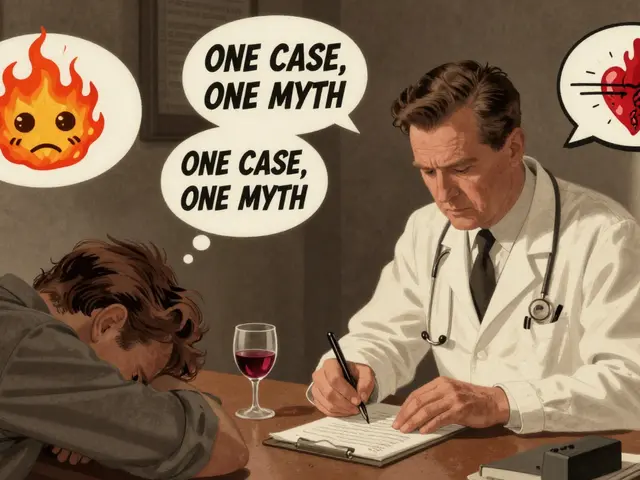Dementia: Practical Steps to Spot Problems and Keep Meds Safe
Dementia changes how someone thinks, remembers, and handles everyday tasks. You can act early and make life easier, even if a diagnosis is already in place. This page gives clear, useful actions you can start today — from spotting warning signs to real-world tips for handling prescriptions safely.
Medications: What to expect
Some drugs can help symptoms or slow decline in certain types of dementia. Common names you’ll hear are donepezil (Aricept), rivastigmine, galantamine and memantine. They don’t cure dementia, but they can improve memory, focus, or behavior for months to years in some people. Side effects often include nausea, sleep changes, and dizziness — so talk to the prescriber about risks versus benefits.
Watch out for medicines that make confusion worse. Anticholinergic drugs (some sleep aids, bladder pills, allergy medicines) can add to memory problems. Always ask a pharmacist whether a new or over-the-counter drug could affect thinking.
Everyday steps that help
Small habits add up. Keep blood pressure, cholesterol and blood sugar under control — vascular health matters for the brain. Regular walking, a Mediterranean-style diet, and good sleep also lower risk. Hearing and vision checks are easy fixes that often make thinking clearer.
Structure the day. Use a single spot for keys, a whiteboard for appointments, and one simple routine for morning and evening. Label drawers and cupboards if dressing or cooking becomes confusing. Reduce clutter and loud noise; a calmer environment cuts down stress and bad decisions.
For medicine safety: use a weekly pill organiser or a pharmacy blister pack, set phone alarms, and keep a current medication list in your wallet. Ask your pharmacy for a medication review yearly — they can flag interactions, duplicate drugs, or doses that might cause falls or confusion.
Legal and practical planning matters early. Get power of attorney, sort out advance care preferences, and keep important documents together. These steps reduce stress later and let you act on the person’s wishes.
If wandering or safety is a risk, add simple safeguards: ID bracelets, door alarms, and good lighting. Share a recent photo with close neighbors and family so someone can help quickly if needed.
You're not alone. Caregiver support groups, respite services, and a trusted pharmacist or geriatrician can make a big difference. For help finding safe medication suppliers or cutting prescription costs, check resources on Safe-Pills.com and talk with your healthcare team before changing any treatment.
Start small: one medicine review, one daily walk, one labeled drawer. Those tiny steps often change how the day goes for both the person with dementia and the caregiver.

Exelon Rivastigmine: Benefits, Dosage, and Real-World Tips for Dementia Care
Take a deep dive into Exelon (rivastigmine), a popular medication for Alzheimer's and Parkinson's-related dementia. Get to know how Exelon works, side effects, the dosages, and real tips for caregivers. Learn key facts, compare with other treatments, and see what research says. This long-read gives practical info for those considering or using Exelon for memory struggles.
View More




